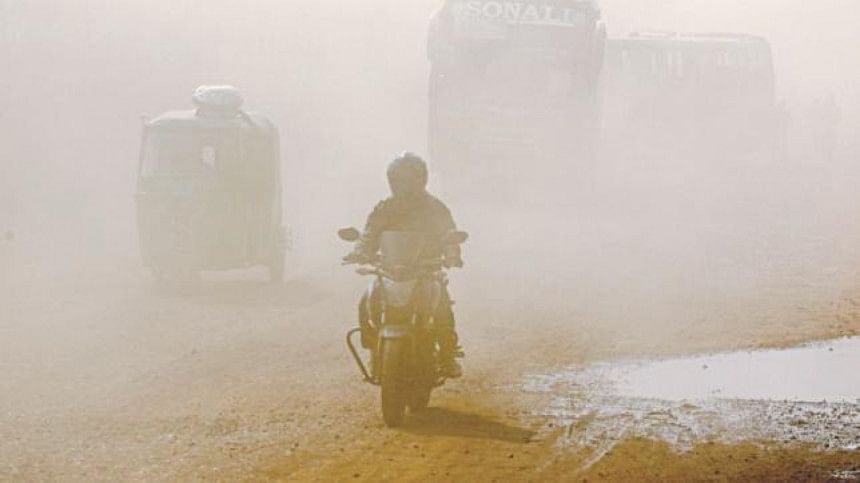Dhaka's air quality ‘moderate’ thanks to less traffic

Dhaka's air quality was 'moderate' today morning due to less traffic on the 4th of the Eid-ul-Azha holidays that began on Tuesday.
With an air quality index (AQI) score of 63 at 10:11am, the densely populated capital city of Bangladesh ranked 23rd in the list of cities worldwide with the worst air quality.
An AQI between 50 and 100 is considered 'moderate' with an acceptable air quality. However, there may be a moderate health concern for a very small number of people who are unusually sensitive to air pollution.
Toronto in Canada, Washington, D.C. in USA and Dubai in UAE occupied the first three spots in the list, with AQI scores of 159, 158 and 154, respectively.
An AQI between 101 and 200 is considered 'unhealthy', particularly for sensitive groups.
Similarly, an AQI between 201 and 300 is said to be 'poor', while a reading of 301 to 400 is considered 'hazardous', posing serious health risks to residents.
AQI, an index for reporting daily air quality, is used by government agencies to inform people how clean or polluted the air of a certain city is, and what associated health effects might be a concern for them.
In Bangladesh, the AQI is based on five criteria pollutants -- Particulate Matter (PM10 and PM2.5), NO2, CO, SO2 and Ozone.
Dhaka has long been grappling with air pollution issues. Its air quality usually turns unhealthy in winter and improves during the monsoon.
As per the World Health Organization (WHO), air pollution kills an estimated seven million people worldwide every year, largely as a result of increased mortality from stroke, heart disease, chronic obstructive pulmonary disease, lung cancer and acute respiratory infections.

 For all latest news, follow The Daily Star's Google News channel.
For all latest news, follow The Daily Star's Google News channel. 



Comments